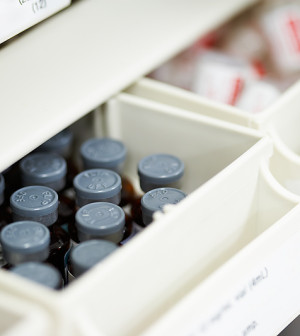- The Best Time of Day to Drink Bone Broth to Maximize Health Benefits
- 8 Ways to Increase Dopamine Naturally
- 7 Best Breads for Maintaining Stable Blood Sugar
- Gelatin vs. Collagen: Which is Best for Skin, Nails, and Joints?
- The Long-Term Effects of Daily Turmeric Supplements on Liver Health
- Could Your Grocery Store Meat Be Causing Recurring UTIs?
- Are You Making This Expensive Thermostat Error This Winter?
- Recognizing the Signs of Hypothyroidism
- 10 Strategies to Overcome Insomnia
- Could Artificial Sweeteners Be Aging the Brain Faster?
Mice Study Sees Link Between Gut Bacteria, Immune Cell Production


Gut bacteria influence the production of immune cells that act as the first line of defense against infection, a new mouse study finds.
If validated in humans, the findings eventually could lead to new therapies to sustain and increase people’s immune function, according to the researchers from Cedars-Sinai Medical Center in Los Angeles.
Experts note, however, that results achieved in animal studies often aren’t able to be replicated in humans.
Previous studies found that gut bacteria affect immune cell activity, but it wasn’t known if they also played a role in immune cell production.
This new research found that immune cell production was defective in mice that lacked gut bacteria. These mice were more likely to develop bacterial infections. The investigators said immune cell replenishment is necessary to fight infection.
“We now have a clearer understanding of how gut microbes influence immune cell production, which has implications for immune defense against infection,” study co-author Helen Goodridge, an assistant professor in the department of biomedical sciences at Cedars-Sinai, said in a center news release.
The study findings, published March 12 in the journal Cell Host & Microbe, also suggest that antibiotics may harm the immune system by reducing gut bacteria and thereby affecting immune cell production. This could put a person at increased risk for future infections and disease, added the study’s co-author, Alberto Yanez, a postdoctoral scientist in Goodridge’s laboratory.
“Gut microbes play very important roles in maintaining human health and this study further highlights the risks associated with the overuse of antibiotics that indiscriminately target helpful, as well as harmful, bacteria,” Yanez said in the news release.
More information
The U.S. National Institutes of Health has more about the bacterial makeup of the body.
Source: HealthDay
Copyright © 2026 HealthDay. All rights reserved.










